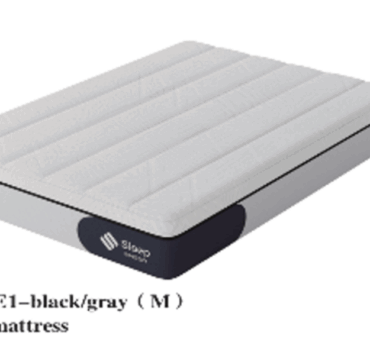Online consumer reviews have changed the way consumers shop. Nearly 90% of consumers research purchases online before walking into a store, and this research determines where they choose to shop.
However, bot-generated, paid and AI reviews have muddied the landscape, and for many industries, this has left consumers hesitant. That lack of trust is the reason Shifman has become the first brand to work with GoodBed and Dow on its new product testing initiative.
Based on GoodBed’s Mattress DNA Framework and the engineering expertise of Dow, the first, independent mattress testing program has been launched. Bedding News Now offered an inside look at it back in October 2024.
Mark Quinn, senior vice president of sales and marketing for Shifman, tells Bedding News Now that the company jumped on the opportunity to be the first brand to participate in the program.
Consumer demand for this kind of research is high. In an online survey of active shoppers, GoodBed found that nearly 90% of consumers would value independent product testing for mattresses, and nearly 100% stated that independent testing would be “very important” in making their purchasing decision. In fact, according to the same research, more than 65% of active shoppers stated that they would be willing to pay a premium for a product that has undergone independent testing.
“This is a game changer for mattress manufacturers and retailers,” says Quinn. “If you’re willing to put your products to the test, and assuming your products will perform, the GoodBed and Dow testing mark will provide a level of consumer trust we haven’t seen to this point at retail.”
The mattress industry is increasingly challenged by retail channels that have no showroom, no salesperson and no guidance. This trend has a distinct negative impact on consumers, says Mike Magnuson, founder and CEO of GoodBed.
“Consumers lose when they lack the information they need to make a good decision. Worse yet, today’s shoppers are often misled by low-quality products that make bold and unsubstantiated claims about their performance. The solution is to empower them with credible third-party information based on real scientific testing. This will allow them to find products that truly deliver on the features they care most about and to purchase those products with confidence,” says Magnuson. “Ultimately, that means they will have higher satisfaction with their purchases.”
Quinn says the company has done a lot for its retailers by giving them the tools they need to make this all matter on the sales floor.
“When we considered manufacturers to pilot this testing program, we knew we had to find one that embraced transparency and an openness to authentic results. And that was Shifman,” continued Magnuson. “Shifman’s commitment to quality goes back more than 100 years, which means they’re as invested as we are in establishing a testing program that fosters trust and confidence with the consumer.”
Shifman participated in the pilot program with an open mind. “We knew going in that between the extensive consumer insights from GoodBed and the pure science of measurement and performance from Dow that we were going to go through the wringer,” says Andi Jones, Shifman’s head of product development. “But the truest measure of trust is the transparency and legitimacy of the standards. You could say we’re obsessive about the design and manufacturing of our products, so it was a challenge we were eager to meet,” she said.
The extensive battery of performance tests ranks how products perform in key areas of concern to consumers. When it comes to moisture wicking, Shifman was best-in-class because of the all-natural materials used in its mattresses. In addition, the natural materials placed Shifman best-in-class for temperature regulation, ensuring a cool and comfortable sleep surface. Shifman also ranked best-in-class for edge support because of its foam-encased innerspring, providing a firm seating surface and an edge-to-edge sleep surface.
Mattresses evaluated through the GoodBed-Dow testing program receive objective performance data based on standardized scientific methods. Bedding brands can use those results to support their product claims.
In addition, Shifman will incorporate QR codes into point-of-sale materials, providing consumers with immediate access to testing documentation, videos and results. “We believe that this program has the potential to be the difference between a purchase and a lost sale. The difference between Shifman and a purchase made solely on price,” adds Quinn.
QR codes are one of a three-pronged approach that also includes launching a website landing page for Shifman that explains the testing. There is also a video of Shifman executives meeting with the scientists in Lake Jackson, Texas.
“If a consumer is in the shopping phase and they go to a website that tells the whole story about what we did, that makes it more real,” Quinn says.





